Members of the faculty receive named professorships
Three University faculty members, Andrew Abbott, the Ralph Lewis Professor in Sociology; John Carlstrom, Professor in Astronomy & Astrophysics; and Sidney Nagel, a Louis Block Professor in Physics, have received distinguished service professorships.Nine other University professors have been appointed to named chairs, and they are Frederick de Armas, Professor in Romance Languages & Literatures; Victor Friedman, Professor in Slavic Languages & Literatures; Philip Hamburger, Professor in the Law School; Joseph Isenbergh, the Seymour Logan Professor in the Law School; Samuel Refetoff, Professor in Medicine and Pediatrics; Raymond Roos, Professor and Chairman of Neurology; Saskia Sassen, Professor in Sociology; L. Ridgway Scott, Professor in Computer Science and Mathematics; and Linda Seidel, Professor in Art History.
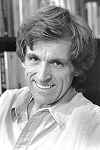 Andrew Abbott |
His argument that professions exist in a complex competitive ecology has redirected studies of professions toward a focus on interdependence, conflict and cooperation. He also has pioneered the application of algorithmic sequencing methods to social data.
He is the author of The System of Professions: An Essay on the Division of Expert Labor, published by the University Press in 1988. In 1991, the American Sociological Association honored Abbott’s work with its Scholarly Publication Award. Abbott also is the author of Discipline and Department: Chicago Sociology at 100, published in 1999, also by the University Press.
The University Press is also publishing in the spring Abbott’s latest book, Chaos of Disciplines. The book examines the evolution and development of the social sciences and contends that changes in intellectual positions are based on a set of beliefs that form a fractal pattern of core principles.
In late spring, the University Press will publish Time Matters, a collection of Abbott’s theoretical and methodological essays on social temporality.
He joined the faculty in 1991 after serving on the faculty at Rutgers University. He received an A.B. from Harvard University in 1970 in history and literature; an A.M. in 1975 and a Ph.D. in 1982, both in Sociology from the University.
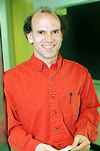 John Carlstrom |
Carlstrom is Director of the University’s Center for Astrophysical Research in Antarctica. He also heads a team of scientists making cosmological measurements with the $3 million Degree Angular Scale Interferometer, an array of 13 radio telescopes that began collecting data at the South Pole early last year.
DASI is making precise measurements of minute temperature variations in the cosmic microwave background radiation, the afterglow of the big bang. This radiation dates back at least 10 billion years, to when the universe was only 300,000 years old, before the formation of the first stars and galaxies.
Supported by the National Science Foundation, the DASI experiment provides researchers with a direct snapshot of the seeds that formed all structure seen in the universe today, including galaxies and great walls of galaxies. The experiment is expected to help answer fundamental questions about the origin of the universe and its ultimate fate.
Carlstrom received a $1 million fellowship from the James McDonnell Foundation in 1999; a $260,000 fellowship from the John D. and Catherine T. MacArthur Foundation in 1998; and a $525,000 fellowship from the David and Lucile Packard Foundation in 1994. He also received NASA’s Medal for Exceptional Scientific Achievement in 1997.
Carlstrom received his B.A. in physics with honors from Vassar College in 1981 and his Ph.D. in physics from the University of California, Berkeley, in 1988. He became a member of the astronomy faculty at the California Institute of Technology in 1991 and served in that post until 1995, when he joined the Chicago faculty.
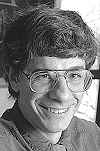 Sidney Nagel |
Much of Nagel’s work has drawn attention to phenomena that scientists have regarded as outside the realm of traditional physics. This includes the physics of granular materials such as sand and coffee stains, which appear to be simple but in fact involve deep scientific issues, and the physics of jamming.
Nagel is a fellow of the American Physical Society, the American Association for the Advancement of Science and the American Academy of Arts and Sciences. His other honors include a fellowship from the Alfred P. Sloan Foundation from 1979 to 1981, the University’s Quantrell Award for Excellence in Undergraduate Teaching in 1996, the Klopsteg Memorial Award of the American Association of Physics Teachers in 1998, and the American Physical Society’s Oliver Buckley Prize in 1999. In December, Nagel presented the Niels Bohr Lecture at the Niels Bohr Institute in Copenhagen, Denmark.
Nagel received his B.A. in physics from Columbia University in 1969 and his Ph.D. in physics from Princeton University in 1974. He joined the Chicago faculty in 1976, following two years as a research associate at Brown University. He was appointed to a Louis Block Professorship in Physical Sciences in 1998.
Nagel directed Chicago’s Materials Research Laboratory from 1987 to 1991 and served as Master of the Physical Sciences Collegiate Division and Associate Dean of the Division of Physical Sciences and the College from 1997 to 2000.
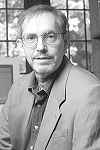 Frederick de Armas |
An expert on the writings of Cervantes, Lope de Vega and CalderŪn, de Armas’ scholarly work has focused primarily on Spanish drama, prose and poetry of the Golden Age. He is the author of five books, including Cervantes, Raphael and the Classics and The Return of Astraea: An Astral Imperial Myth in CalderŪn.
His current projects include “Quixotic Frescoes: Cervantes and Italian Renaissance Art” and “A Theater of Planetary Gods: Spanish Drama 1580–1680.” An editor and co-editor of numerous books in his field of expertise, de Armas has edited six volumes, including A Star-Crossed Golden Age: Myth and the Spanish Comedia, and together with Patrick Cheney as his co-editor, Western Literary Careers: Classical, Medieval, Renaissance. He has chaired and organized numerous conferences and panel discussions, including a session last year following a performance of CalderŪn’s Life’s a Dream at Court Theatre.
De Armas, who has been an Institute for the Arts & Humanistic Studies fellow, a Carnegie fellow, and has received multiple National Endowment for the Humanities grants and fellowships, has taught at Pennsylvania State University, where he was the Edwin Erle Sparks professor in Spanish and comparative literature; Duke University, where he served as a visiting professor; and at Louisiana State University, Baton Rouge, where he served as director of graduate studies in Spanish and Portuguese.
He received his B.A. from Stetson University and his Ph.D. in comparative literature from the University of North Carolina, Chapel Hill.
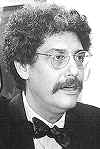 Victor Friedman |
Friedman, who has done fieldwork in the Balkans for more than 25 years, is an internationally renowned scholar in Balkan linguistics–especially Macedonian, Albanian, Bulgarian, Romani and Aromanian–and Caucasian linguistics.
Friedman’s research centers on grammatical categories, language contact and sociolinguistics. Currently, he is engaged with a book on the Balkan languages and grammatical outlines of Albanian and Lak. Friedman’s The Grammatical Categories of the Macedonian Indicative (Slavica, 1977) was the first book published in North America on modern Macedonian. His other books include translations of Contemporary Macedonian Statehood (Macedonian Review, 1974) and Macedonian Historical Phonology (Carl Winter, 1983).
Friedman has received research grants from Fulbright-Hays, the American Council of Learned Societies and the National Endowment for the Humanities. In 1982, he received the “1300 Years of Bulgaria” jubilee medal for contributions to the field of Bulgarian studies, and in 1991, he was awarded the University of Skopje Gold Plaque Award for contributions to the field of Macedonian studies. In 1994, he was elected to the Macedonian Academy of Arts and Sciences.
During the summer of 1994, Friedman worked as a Senior Policy and Political Analyst for the Analysis and Assessment Unit of the United Nations Protection Forces stationed in former Yugoslavia, and he since has taken part in fact-finding missions in the region for the Council on Foreign Relations and the International Crisis Group.
Friedman received his B.A. in Russian language and literature from Reed College in 1970. In 1975, the University’s Division of the Humanities granted Friedman a joint Ph.D.–its first–in both Slavic Languages & Literatures and in Linguistics.
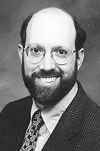 Philip Hamburger |
Hamburger’s forthcoming book, Separation of Church and State, will be published this year by Harvard University Press. His other current scholarly endeavors include liberal sentiments during the founding of the United States. Previously he has written about equal protection and civil rights in the United States in the 18th century, the development of the 19th-century consensus theory of contract, and the law of seditious libel and control of the press, among other topics.
In 1991, the American Society for Legal History awarded Hamburger the Sutherland Prize for his article titled, “The Development of the Nineteenth Century Consensus Theory of Contract.” The society awarded him again with the prize in 1995 for his article, “Revolution and Judicial Review: Chief Justice Holt’s Opinion in City of London vs. Wood,” which it deemed “the most significant contribution to English legal history” for that year.
Hamburger was a Visiting Professor at the University’s Law School during the Winter Quarter 2000. He also has served as a Visiting Professor at Northwestern University and the University of Virginia, and has taught at the George Washington University National Law Center and the University of Connecticut School of Law.
Hamburger earned a B.A. in history from Princeton University in 1979 and a J.D. from Yale Law School in 1982.
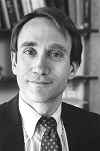 Joseph Isenbergh |
Isenbergh, who has written three books and numerous articles on international taxation, is one of the leading tax law experts in the United States. His three-volume treatise, International Taxation, published in 1990, with second and third editions in 1995 and 2001, is regarded as one of the essential texts for study and practice in this subject.
Isenbergh has been on the Law School faculty since 1980 and has taught federal and international taxation, corporations and international business transactions, among other subjects.
In his writing, Isenbergh has advocated adoption of a value-added tax system in the United States to encourage taxpayers to save through a more neutral system based on consumption.
His expertise also includes the presidential impeachment process. During the Clinton impeachment proceedings, Isenbergh was widely quoted for his view that the Senate had the authority to convict the President on the articles of impeachment, yet still had discretionary power not to remove him from office.
Isenbergh earned his undergraduate degree from Columbia University and pursued doctoral studies in comparative literature and linguistics before earning a J.D. at Yale Law School. Earlier he had worked in the tax practice of a Washington law firm and had taught at both Harvard University and the University of Rochester.
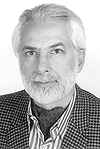 Samuel Refetoff |
An authority on the thyroid and thyroid hormone, Refetoff first described the syndrome of RTH, resistance to thyroid hormone, which is frequently referred to as Refetoff’s syndrome, in 1967. He identified the first thyroid hormone receptor mutation causing RTH in 1989 and has established a worldwide registry containing information on about 300 families with this syndrome. More recently he identified RTH in humans and animals without thyroid hormone receptor gene mutations. Refetoff also discovered the syndrome of resistance to thyroid stimulating hormone or TSH and demonstrated that it is caused by mutations in the TSH receptor gene. His pioneering work is now directed toward gene therapy of thyroid diseases.
Refetoff has edited two books and authored or co-authored nearly 250 original research articles, 50 review articles and 50 book chapters. He has received many honors, including a Merit Award from the National Institutes of Health and the Paul Starr Award from the American Thyroid Association.
Born in Bulgaria, Refetoff earned his baccalaureate, with distinction, from Lycee, in Antwerp, Belgium, then completed his B.S. in biochemistry, magna cum laude, from the University of Montreal. After receiving his M.D. from McGill University, he did his internship at Notre Dame Hospital, in Montreal, and his residency in internal medicine at The Hospital of the Good Samaritans in Los Angeles and the Lahey Clinic Foundation in Boston.
He completed a research fellowship in endocrinology at Harvard Medical School, then joined the faculty there as an instructor while serving as an assistant in medicine at the Peter Bent Brigham Hospital in Boston and as a clinical and research associate at the Massachusetts Institute of Technology. He joined the Chicago faculty in 1969.
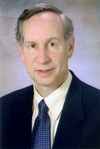 Raymond Roos |
An authority on the relationship between viral infection and neurological disease and on the use of viruses for gene therapy of the central nervous system, Roos has edited one book and authored or co-authored more than 100 original research articles in peer-reviewed journals. He also has authored or co-authored nearly 50 book chapters and more than 150 abstracts or meeting presentations on his research.
He serves on the editorial boards of the journals Neuroimmunology and NeuroVirology, an institute of medicine committee on Multiple Sclerosis, an advisory committee on transmissible spongiform encephalopathies (prion diseases) of the Food and Drug Administration, the scientific advisory board of the Neuropathy Association and is co-chair of the scientific review committee of the ALS Association. He previously served on National Institutes of Health Study Sections, the medical advisory board of the Friends of Spinal Muscular Atrophy, the medical advisory board of the National Multiple Sclerosis, and from 1995 to 1996 as chairman of the Vaccines and Related Biological Products Advisory Committee of the Food and Drug Administration. He also directs a neuropathy clinic and a nationally recognized ALS clinic at the University Hospitals, one of few such clinics designated by the Muscular Dystrophy Association.
Roos earned an A.B. degree from Columbia University in 1964 and his M.D. from the State University of New York Downstate Medical Center in 1968. He pursued fellowships at the National Institutes of Health and the Johns Hopkins School of Medicine and spent four months as a medical researcher on an expedition to the Solomon Islands and other Pacific islands. He taught at Johns Hopkins until he joined the Chicago faculty in 1976. He was a Visiting Scientist in Cellular, Viral and Molecular Biology at Chicago in 1980 and in microbiology and Molecular Genetics at the University of California, Irvine, in 1988.
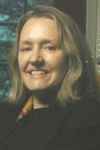 Saskia Sassen |
Sassen is completing a five-year research project titled “Governing and Accountability in a World Economy,” and is director of a new project on global cities and cross-border networks for the Institute of Advanced Studies, United Nations University, Tokyo.
In her work, she contends that the globalization of firms and markets produces not only dispersal but also a growth in central functions, which tend to be located in a network of global cities. One effect is that large urban centers such as New York and London have more in common with each other than they do with many aspects of their own national economies, societies and cultures.
She is the author of The Mobility of Labor and Capital (1988); The Global City: New York, London, Tokyo (1991), Cities in a World Economy (1994), Losing Control? Sovereignty in an Age of Globalization (1996), Globalization and its Discontents, Selected Essays 1984-1998 (1998) and Guests and Aliens (2000).
She has completed a project sponsored by The Twentieth Century Fund (now the New Fund) titled Immigration Policy in a World Economy; From National Crisis to Multilateral Management.
Sassen is the chair of the newly formed Information Technology, International Cooperation and Global Security Committee of the Social Science Research Council. She also co-directs the Economic Section of the Global Chicago Project.
Sassen joined the University faculty in 1998 after serving on the faculty at Columbia University. She received two years of undergraduate education at the Universidad Nacional de Buenos Aires in Argentina and the Universita degli Studi di Roma in Italy respectively. She then moved immediately to graduate school, receiving a Ph.D. in sociology and economics from the University of Notre Dame in 1974.
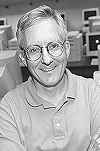 L. Ridgway Scott |
Scott is a founding co-director of the Computation Institute, a joint effort between the University and Argonne National Laboratory aimed at bringing the most advanced tools of computer science to bear on fields ranging from the sciences to the arts and humanities. He also is a founding member of the Institute for Biophysical Dynamics, a joint initiative between the Biological Sciences and Physical Sciences divisions, which is devoted to research that transcends the boundaries of traditional scientific disciplines.
As a member of the University’s Center for Astrophysical Thermonuclear Flashes, he helps guide research that uses the world’s most powerful supercomputers to study the explosive deaths of massive stars.
His recent activities have involved the development of bioinformatics research at the University, focusing on the use of biological micro-arrays to answer fundamental questions in biology and medicine in collaboration with researchers in the BSD.
Scott received his B.S. with honors from Tulane University in 1969 and his Ph.D. from the Massachusetts Institute of Technology in 1973. He began his career at Chicago in 1973 as an L.E. Dickson Instructor in Mathematics.
He left the University in 1975 and worked as a mathematician at Brookhaven National Laboratory until 1978. He then returned to teaching mathematics at the University of Michigan until 1986. He taught computer science and mathematics from 1986 to 1989 at Pennsylvania State University and from 1989 to 1998 at the University of Houston, where he had served as the M.D. Anderson chair of computer science and mathematics and as director of the Texas Center for Advanced Molecular Computation.
Scott returned to Chicago as a Professor in Computer Science and Mathematics in 1998.
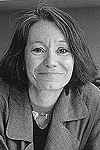 Linda Seidel |
Seidel’s fields of expertise include medieval architectural sculpture, northern European Renaissance painting and art historical methodology. Her current interests focus on the representation of domesticity in 15th-century art and on the early career of the influential scholar and critic, Meyer Schapiro.
Her books include Jan van Eyck’s Arnolfini Portrait: Stories of an Icon (Cambridge University Press, 1993), Songs of Glory: The Romanesque Facades of Aquataine (University Press, 1981) and Romanesque Sculpture from the Cathedral of St-Etienne, Toulouse (Gardener Press, 1977). Her most recent work, Legends in Limestone: Lazarus, Gislebertus and the Cathedral of Autun (University Press, 1999), examines the diverse ways in which 12th-century visitors and more recent viewers have approached this medieval church and understood its elaborate program of sculptures.
Siedel was the recipient of a Burlington Northern Distinguished Graduate Teaching Award in 1990 and served as a Phi Beta Kappa Visiting Professor on several college campuses in 1994 and 1995. At Chicago, she has been involved in the teaching of two courses that culminated in exhibitions at the David and Alfred Smart Museum of Art, a project which was supported by special funding from the Mellon Foundation.
Seidel received her B.A. degree from Barnard College, her M.A. from Ratcliffe College and her Ph.D. in Fine Arts from Harvard University where she taught before joining the faculty at Chicago in 1977.
![[Chronicle]](/images/small-header.gif)